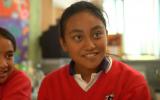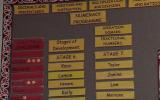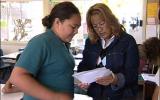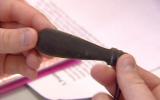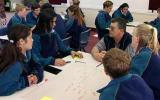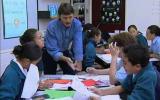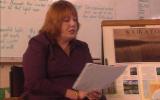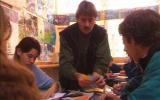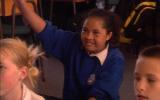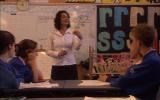Section navigation
Filter by result
Sections
- Te Reo Māori(3)
- Research & evaluation(3)
- Effective leaders(11)
- Effective teachers(34)
Key collections
- Te Mana Kōrero(15)
- Te Kotahitanga(8)
Principles
Ako
Thank you for visiting. This site will close in July 2025.
Please visit Tāhūrangi - the new online curriculum hub from the Ministry of Education.
"...research shows that student engagement and achievement improves when teachers develop positive teaching and learning relationships with Māori students..."
Ka Hikitia – Managing for Success: The Māori Education Strategy 2008-2012, page 23.
The concept of ako describes a teaching and learning relationship where the educator is also learning from the student and where educators’ practices are informed by the latest research and are both deliberate and reflective. Ako is grounded in the principle of reciprocity and recognises that the learner and whānau cannot be separated.
The resources you will find on this page reflect the principles of ako and provide examples of this in the classroom and beyond.
-
Te Kauhua: Student voice
 28/06/2011
28/06/2011
Filed under: Productive partnerships | Ako | Effective teachers
Providing opportunities for student voice informed and encouraged changes in teacher practice.
-
Celebrating success at Hiruharama School
 28/06/2011
28/06/2011
Filed under: Productive partnerships | Ako | Effective teachers
At Hiruharama School, the process of learning is expressly communicated to all the students, and they are the primary communicators of their learning to whānau. (Extract from ‘Te ManaKōrero: Relationships for Learning’, 2007).
-
Te Mana Kōrero: Culture counts 2
 28/06/2011
28/06/2011
Filed under: Productive partnerships | Identity Language and Culture | Ako | Effective teachers
Culturally responsive learning contexts are those where the learner can bring their own experiences into the classroom context. (Extract from ‘Te ManaKōrero: Relationships for Learning’, 2007).
-
Te Mana Kōrero: Culture counts 1
 28/06/2011
28/06/2011
Filed under: Identity Language and Culture | Ako | Effective teachers
Research shows that bringing cultural context into the curriculum affirms the students identity, and validates their cultural knowledge and knowledge of their whānau. (Extract from ‘Te ManaKōrero: Relationships for Learning’, 2007).
-
Impacting Māori student achievement outcomes
 28/06/2011
28/06/2011
Filed under: Ako | Effective teachers
Practitioners reflect on the impact of professional development that is focused on improving Māori learning outcomes. (Extract from ‘Te Mana Kōrero : Strengthening Professional Practice’, 2005).
-
Filed under: Ako | Effective teachers
What are the key features of professional development that strengthens Māori student learning outcomes, and what effect has that had on teacher practice? (Extract from ‘Te ManaKōrero: Strengthening Professional Practice’, 2005).
-
Filed under: Ako | Effective teachers
At Whangarei Intermediate, teacher Joe Beaumont works to create a classroom environment which is both supportive and challenging. The focus is on ensuring that every student sees what they are capable of achieving.
-
Filed under: Ako | Effective teachers
At Rotorua Lakes High School maths teacher Tony Renshaw has changed what is going on in his classroom to encourage Māori student participation and achievement.
-
Building trust, setting expectation
 28/06/2011
28/06/2011
Filed under: Ako | Effective teachers
What do teachers have to do to make students feel that they can achieve? What is the basis of an effective learning relationship? (Extract from ‘Te ManaKōrero: Teachers making a difference’, 2002) .
-
What makes a really good teacher?
 14/03/2012
14/03/2012
Filed under: Ako | Effective teachers
Students and teachers reflect on the qualities of a teacher that makes a difference. (Extract from ‘Te ManaKōrero: Teachers making a difference’, 2002) .






